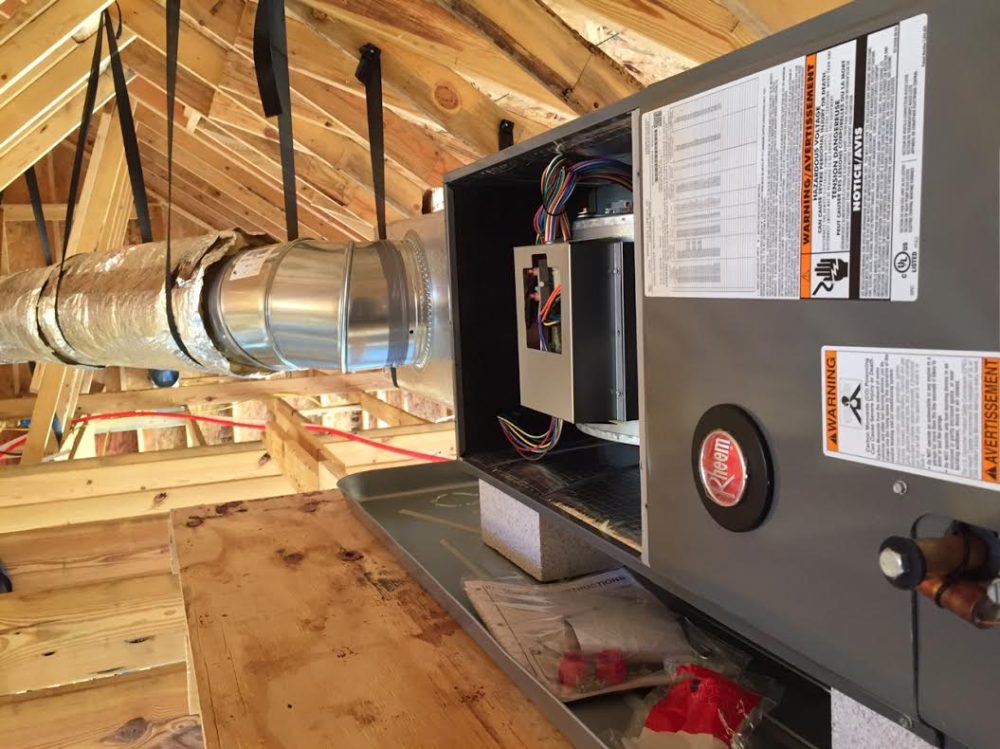HVAC Basics: A Complete Guide

Hello and welcome to your quick yet enlightening guide on heating, ventilation, and air conditioning, more commonly known as HVAC. As part of our commitment at Anderson Mechanical, we believe in empowering our customers with the knowledge to make informed decisions about their home comfort. So, whether you’re a seasoned customer looking to expand your understanding, a new homeowner faced with the daunting world of HVAC, or anyone just curious, we’ve got you covered.
The ABC's of HVAC
First and foremost, HVAC stands for Heating, Ventilation, and Air Conditioning. It’s not just an intricate term used by engineers; an HVAC system plays an integral role in our everyday comfort. It protects us from extremes of weather conditions and ensures a pleasant indoor environment. Important components are:
Supply Vent: Playing a central role in air circulation, these are like windows allowing air to flow in and out of the rooms, maintaining fresh air throughout.
Ductwork: Ducts act as air highways, shuttling air from one place to another within the system, making sure each corner of your building gets its fair share of conditioned air.
Thermostat: This intelligent device regulates the temperature within your home, instructing the HVAC system when to heat or cool.
Compressor: This part compresses the refrigerant from a gas state to a high-pressure hot liquid, a critical step in the cooling process.
Evaporator coils: These absorb heat from the air, cooling it down before cycling it back into the room, constantly maintaining a soothing environment.
Air Handler: The component of an HVAC system that moves air through the ductwork. It typically includes a blower, heating or cooling coils, and filters.
Condenser: The part of an air conditioning system that releases heat absorbed from the indoor air to the outdoors. It consists of a coil, fan, and condenser unit.
Refrigerant: A substance used in air conditioning systems to absorb and release heat. Common refrigerants include R-22, R-410A, and R-32.
SEER (Seasonal Energy Efficiency Ratio): A measure of the cooling efficiency of an air conditioning system over an entire cooling season. The higher the SEER rating, the more energy-efficient the system.
The Importance of HVAC Systems
HVAC systems do much more than control temperature. They’re our guardians, committed to maintaining high indoor air quality by filtering out pollutants, regulating moisture levels to prevent mold growth, and creating a safe and healthy living space.
Let Anderson Mechanical Guide You
At Anderson Mechanical, we’re committed not only to offering top-notch HVAC services but also to educating our customers. When you’re well-informed, we can work together effectively to design and maintain the best home comfort solution for you. Whether you need advice on replacing your current equipment, regular maintenance, or installing a new system, we’re your go-to HVAC resource.
In Conclusion
With this basic knowledge about HVAC systems, you’re now equipped to better understand and manage your home’s heating, cooling, and ventilation. Remember, at Anderson Mechanical, we’re always ready to assist, answer your questions, and guide you through all decisions related to your HVAC system. Utilize us as your resource for all things air conditioning – and beyond—, helping you achieve a comfortable, safe, and efficient home.
